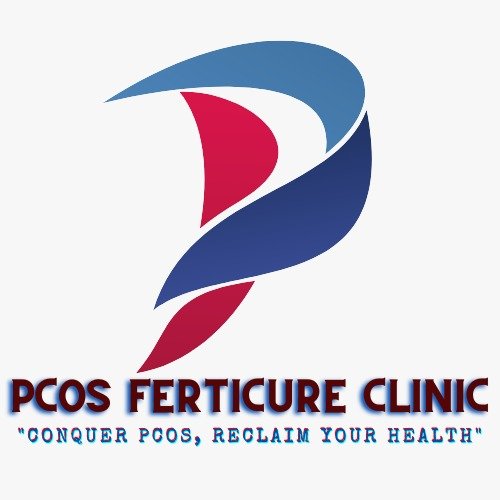PCOS can make weight loss a challenging journey, but with the right approach and determination....
Read more1.Introduction to PCOS and Urine Infections
Polycystic Ovary Syndrome, often abbreviated as PCOS, is a prevalent and intricate hormonal disorder that affects a significant population of women across the globe. While PCOS primarily manifests in various reproductive and endocrine symptoms, it can also influence other aspects of a woman's health, including urinary health. In this section, we will embark on a journey to grasp the fundamentals of PCOS and explore the intriguing link it shares with urinary tract infections (UTIs).
1.1 Understanding PCOS and its Impact on Women's Health
PCOS is a multifaceted condition characterized by hormonal imbalances, irregular menstrual cycles, and the presence of small cysts on the ovaries. These hormonal irregularities can disrupt the body's equilibrium, impacting not only the reproductive system but also the urinary tract. While PCOS predominantly garners attention for its influence on fertility and hormonal fluctuations, its potential connection with urinary health is often overlooked. However, understanding this connection is vital for comprehensive healthcare, as it can empower women to proactively manage their well-being.
1.2 Defining Urine Infections and Their Types
In addition to comprehending PCOS, it's essential to grasp the concept of urinary tract infections (UTIs) and their diverse types. UTIs can affect various parts of the urinary system, including the bladder, urethra, and kidneys. These infections can cause discomfort, pain, and potential complications if left untreated. As we delve deeper into this article, we'll explore the connection between PCOS and the increased susceptibility to UTIs, shedding light on the factors that contribute to this phenomenon.
2. The Link Between PCOS and Urine Infections
Understanding the intricate relationship between Polycystic Ovary Syndrome (PCOS) and urinary tract infections (UTIs) is crucial for women's health. In this section, we will explore how PCOS can influence the occurrence of UTIs and the various factors contributing to this link.
2.1 Exploring the Connection: How PCOS Can Influence UTIs
PCOS, characterized by hormonal imbalances and ovarian cysts, can impact the body's overall health beyond its well-known effects on the reproductive system. One of the less-discussed consequences of PCOS is its influence on the urinary tract, making women with PCOS more vulnerable to UTIs. To better understand this connection, let's delve into the specifics of how PCOS can affect urinary health and the factors that increase the risk of UTIs in individuals with PCOS.
2.2 Factors Contributing to Increased Risk
While PCOS itself can create a predisposition to UTIs, several factors within the PCOS framework contribute to an increased risk. These factors encompass hormonal imbalances, lifestyle considerations, and other underlying conditions. By exploring these contributing elements, we can gain valuable insights into why women with PCOS should pay special attention to their urinary health.
3. Symptoms and Signs of UTIs in Women with PCOS
Recognizing the symptoms and signs of urinary tract infections (UTIs) in women with Polycystic Ovary Syndrome (PCOS) is vital for timely intervention and management. In this section, we will explore the common indicators of UTIs and how they may manifest differently in individuals with PCOS.
3.1 Understanding UTI Symptoms
UTIs can present a range of uncomfortable and distressing symptoms, such as frequent urination, burning sensation during urination, and cloudy or bloody urine. However, women with PCOS may experience these symptoms in conjunction with their existing PCOS-related issues, making it essential to distinguish between the two. Let's delve into the specifics of how UTIs can manifest in women dealing with the complexities of PCOS.
3.2 Differentiating UTI Symptoms from PCOS Symptoms
Distinguishing between the symptoms of UTIs and those of PCOS is crucial for accurate diagnosis and effective treatment. PCOS itself can present symptoms such as pelvic pain and frequent urination, which may overlap with UTI symptoms. In this subsection, we will provide insights into how women with PCOS can differentiate between the two sets of symptoms, enabling them to seek appropriate medical care when needed.
4. Diagnosis and Evaluation of UTIs in Women with PCOS
Accurate diagnosis and evaluation of urinary tract infections (UTIs) in women with Polycystic Ovary Syndrome (PCOS) are essential for effective treatment and management. In this section, we will explore the diagnostic process and evaluation methods specific to women dealing with the complexities of PCOS and UTIs.
Women with PCOS may face challenges in identifying and addressing UTIs due to the overlapping symptoms with their PCOS-related issues. To ensure timely and precise diagnosis, healthcare professionals employ a combination of clinical assessment, laboratory tests, and medical history evaluation. Let's delve into the details of how UTIs are diagnosed and evaluated in the context of PCOS.
4.1 Clinical Assessment
Clinical assessment involves a thorough examination by a healthcare provider. For women with PCOS, it's essential to consider their unique medical history and PCOS-related symptoms during this evaluation. Healthcare professionals will inquire about UTI symptoms, perform a pelvic exam, and discuss any recent changes in urinary habits.
4.2 Laboratory Tests
Laboratory tests play a pivotal role in diagnosing UTIs. Urine analysis, including a urinalysis and urine culture, can detect the presence of bacteria and abnormal levels of substances in the urine. For women with PCOS, interpreting these test results while considering their underlying condition is crucial for accurate diagnosis.
4.3 Medical History Evaluation
Understanding the patient's medical history is essential in diagnosing UTIs in women with PCOS. Healthcare providers will inquire about any previous UTIs, PCOS-related treatments, and any medications currently being taken. This comprehensive evaluation ensures that the diagnosis considers both PCOS and UTIs.
4.4 Differential Diagnosis
Differential diagnosis is crucial to distinguish between UTIs and PCOS-related symptoms. Healthcare professionals will assess whether the symptoms are primarily due to a UTI or if there are underlying PCOS-related issues contributing to the discomfort. This differentiation guides treatment strategies and ensures the right interventions are in place.
4.5 Psychological Assessment
Women with PCOS may experience psychological stress and anxiety related to their health conditions. A psychological assessment can help evaluate the emotional impact of UTIs and PCOS on the patient's well-being. Addressing psychological aspects is an integral part of holistic healthcare for women dealing with both PCOS and UTIs.
5. Treatment Options for UTIs in Women with PCOS
Effectively managing urinary tract infections (UTIs) in women with Polycystic Ovary Syndrome (PCOS) requires a tailored approach. In this section, we will explore the various treatment options available to address UTIs while considering the unique needs and challenges faced by individuals with PCOS.
The treatment of UTIs in women with PCOS involves a combination of addressing the infection itself and managing PCOS-related symptoms. Healthcare professionals consider the patient's medical history, the severity of the UTI, and the presence of any underlying PCOS issues when designing a treatment plan. Let's delve into the diverse treatment options available in the context of PCOS and UTIs.
5.1 Antibiotics for UTI
Antibiotics are the primary treatment for UTIs, targeting the underlying bacterial infection. Healthcare providers prescribe antibiotics based on the type of bacteria identified through laboratory tests. For women with PCOS, antibiotic selection considers any potential interactions with PCOS medications or hormonal treatments.
5.2 Management of PCOS Symptoms
While treating UTIs, healthcare professionals may also address PCOS-related symptoms. This may include managing hormonal imbalances, regulating menstrual cycles, and addressing other concerns specific to PCOS. A holistic approach ensures that women with PCOS receive comprehensive care for both conditions.
5.3 Preventive Strategies
Preventing recurrent UTIs is crucial for women with PCOS. Healthcare providers may recommend lifestyle modifications and preventive measures. These can include staying hydrated, maintaining good hygiene practices, and incorporating dietary changes that support urinary health. Preventive strategies aim to reduce the risk of future UTIs.
5.4 Collaborative Care
Collaboration between healthcare providers is essential in managing UTIs in women with PCOS. When multiple aspects of health are involved, such as UTIs and PCOS, a collaborative approach ensures that all facets are considered. This approach may involve coordination between gynecologists, urologists, endocrinologists, and other specialists.
6. Tips for Preventing and Managing UTIs in Women with PCOS
Preventing and effectively managing urinary tract infections (UTIs) in women with Polycystic Ovary Syndrome (PCOS) requires a proactive approach. In this section, we will provide valuable tips and strategies to prevent UTIs and maintain urinary health while considering the unique challenges faced by individuals with PCOS.
Women with PCOS can incorporate lifestyle changes and adopt practices that reduce the risk of UTIs. Additionally, managing PCOS-related symptoms plays a significant role in overall health and well-being. Let's explore essential tips for preventing and managing UTIs in the context of PCOS.
6.1 Maintaining Good Hygiene
Proper hygiene practices are essential to prevent UTIs. Women with PCOS should pay extra attention to maintaining cleanliness in the genital area, using gentle and unscented hygiene products, and ensuring thorough cleaning after urination. These practices help minimize the risk of bacterial entry into the urinary tract.
6.2 Staying Hydrated
Adequate hydration is crucial for urinary health. Drinking plenty of water helps flush bacteria out of the urinary tract and dilutes urine, reducing the risk of infection. Women with PCOS should prioritize staying well-hydrated as part of their overall health and UTI prevention strategy.
6.3 Cranberry Supplements
Cranberry supplements or cranberry juice may be beneficial for preventing UTIs. Cranberries contain compounds that can help inhibit the adhesion of bacteria to the urinary tract lining. Women with PCOS can discuss the use of cranberry supplements with their healthcare providers to determine if it's a suitable preventive measure.
6.4 PCOS Management
Effectively managing PCOS plays a significant role in reducing UTI risk. Balancing hormones, maintaining a healthy weight, and addressing insulin resistance are key components of PCOS management. By addressing PCOS-related issues, women can improve their overall health and reduce susceptibility to UTIs.
7. Natural Remedies for Preventing and Alleviating UTIs in Women with PCOS
Incorporating natural remedies can be a complementary approach to prevent and alleviate urinary tract infections (UTIs) in women with Polycystic Ovary Syndrome (PCOS). In this section, we will explore natural remedies and holistic methods that can help maintain urinary health while considering the unique needs of individuals with PCOS.
Women with PCOS can benefit from natural remedies that support the urinary system and overall well-being. These remedies aim to enhance the body's natural defenses against UTIs and provide relief from discomfort. Let's delve into the natural remedies that can be valuable for women with PCOS in preventing and alleviating UTIs.
7.1 Probiotics for UTI Prevention
Probiotics, often found in yogurt and supplements, can promote a healthy balance of beneficial bacteria in the urinary tract. This can help prevent the overgrowth of harmful bacteria that can lead to UTIs. Women with PCOS can discuss the use of probiotics with their healthcare providers to incorporate them into their wellness routine.
7.2 D-Mannose Supplements
D-Mannose is a natural sugar that can help prevent UTIs by inhibiting the adhesion of bacteria to the urinary tract lining. It can be taken as a supplement and may be particularly beneficial for women with PCOS who are prone to recurrent UTIs. Consultation with a healthcare provider is advisable before using D-Mannose supplements.
7.3 Herbal Teas for UTI Relief
Certain herbal teas, such as chamomile and echinacea, possess anti-inflammatory and immune-boosting properties. These teas may provide relief from UTI symptoms and support the body's natural defenses. Women with PCOS can consider incorporating herbal teas into their daily routine as part of holistic UTI prevention.
7.4 Cranberry Juice
Cranberry juice, known for its potential to prevent UTIs, contains compounds that interfere with bacteria's ability to adhere to the urinary tract lining. Drinking unsweetened cranberry juice may be a beneficial natural remedy for women with PCOS looking to reduce their UTI risk.
7.5 Balanced Diet for Urinary Health
Maintaining a balanced diet is essential for overall health and can indirectly contribute to urinary health. Adequate intake of vitamins, minerals, and antioxidants supports the body's immune system and reduces susceptibility to infections, including UTIs. A well-rounded diet complements other preventive measures for women with PCOS.
8. Lifestyle Changes to Enhance Urinary Health in Women with PCOS
Incorporating lifestyle changes can significantly enhance urinary health in women with Polycystic Ovary Syndrome (PCOS). In this section, we will explore lifestyle modifications and habits that can help prevent urinary tract infections (UTIs) while addressing the unique challenges faced by individuals with PCOS.
Women with PCOS can proactively improve their urinary health by adopting healthy lifestyle practices. These changes not only reduce the risk of UTIs but also contribute to overall well-being. Let's explore essential lifestyle modifications that can enhance urinary health for women with PCOS.
8.1 Balanced Diet and Hydration
Maintaining a balanced diet that includes a variety of fruits, vegetables, whole grains, and lean proteins is crucial for women with PCOS. Proper nutrition supports the immune system and helps prevent UTIs. Staying well-hydrated by drinking an adequate amount of water throughout the day is equally essential to flush out toxins and bacteria from the urinary tract.
8.2 Regular Physical Activity
Engaging in regular physical activity offers numerous benefits for women with PCOS. Exercise helps regulate hormones, improve insulin sensitivity, and support weight management—all of which are vital for reducing the risk of UTIs. Incorporating a mix of aerobic and strength-training exercises into the routine promotes overall health.
8.3 Stress Management
Chronic stress can weaken the immune system, making women more susceptible to infections, including UTIs. Implementing stress management techniques like mindfulness, meditation, yoga, or deep breathing exercises can help women with PCOS reduce stress levels and bolster their overall health.
8.4 Adequate Sleep Hygiene
Getting enough quality sleep is essential for maintaining optimal health. Adequate sleep supports immune function and overall well-being. Women with PCOS should prioritize establishing healthy sleep habits and ensuring they get the recommended amount of rest each night.
9. Skincare Tips for Women with PCOS-Related Urinary Tract Infections
Maintaining proper skincare is crucial for women with Polycystic Ovary Syndrome (PCOS) to prevent urinary tract infections (UTIs). In this section, we will explore essential skincare tips and routines tailored to the unique needs and challenges faced by individuals with PCOS.
Women with PCOS can benefit from a skincare routine that promotes urinary health and prevents UTIs. This includes practices that focus on hygiene, moisturization, and protection. Let's delve into the skincare tips that can help women with PCOS reduce the risk of UTIs.
9.1 Gentle Cleansing
When cleansing the genital area, women with PCOS should use gentle, unscented soap and avoid harsh or fragranced products. Proper cleansing helps remove bacteria and reduce the risk of UTIs. It's essential to maintain good hygiene while being mindful of skin sensitivity.
9.2 Regular Exfoliation
Regular exfoliation helps prevent the buildup of dead skin cells, reducing the risk of bacterial colonization. Women with PCOS can incorporate gentle exfoliation into their skincare routine, focusing on the bikini line and genital area. Exfoliating scrubs specifically designed for sensitive skin are ideal.
9.3 Moisturization
Proper moisturization is essential to maintain skin health and prevent dryness or irritation that can lead to UTIs. Women with PCOS should use a fragrance-free, hypoallergenic moisturizer to keep the genital area well-hydrated and comfortable.
9.4 Sun Protection
Protecting the genital area from sun exposure is crucial for women with PCOS. Sunscreen or clothing that provides adequate coverage can prevent skin damage and reduce the risk of UTIs. UV protection is particularly important for those with sensitive skin.
9.5 Choosing the Right Underwear
Selecting breathable, cotton underwear helps maintain proper ventilation in the genital area. Avoiding tight-fitting or synthetic fabrics reduces moisture buildup, decreases the risk of bacterial growth, and supports urinary health for women with PCOS.
10. Consulting a Healthcare Professional for UTIs in Women with PCOS
While self-care and prevention strategies are valuable, consulting a healthcare professional is essential for women with Polycystic Ovary Syndrome (PCOS) dealing with urinary tract infections (UTIs). In this section, we will explore when to seek professional help, available treatment options, and the collaborative approach to UTI management for individuals with PCOS.
Women with PCOS should recognize the importance of consulting healthcare experts when facing UTIs. Collaborating with healthcare providers ensures comprehensive care and effective management of UTIs. Let's delve into the aspects of consulting a healthcare professional for UTIs in women with PCOS.
10.1 Recognizing When to Consult
Knowing when to consult a healthcare professional for UTIs is crucial for timely and appropriate treatment:
- Recurrent UTIs: Women with PCOS experiencing frequent UTIs should consult a healthcare provider to identify underlying causes and develop preventive strategies.
- Severe Symptoms: If UTI symptoms are severe, including intense pain, high fever, or blood in the urine, immediate medical attention is necessary.
- Complications: UTIs that lead to complications, such as kidney infections, require prompt diagnosis and treatment by healthcare experts.
10.2 Treatment Options
Healthcare professionals offer various treatment options tailored to the severity and recurrence of UTIs:
- Antibiotics: UTIs caused by bacterial infections are typically treated with antibiotics. Healthcare providers prescribe specific antibiotics based on the type of bacteria and individual health factors.
- Urinary Analgesics: These medications can provide relief from UTI symptoms, such as pain and discomfort, while antibiotics work to eliminate the infection.
- Preventive Strategies: Healthcare professionals advise women with PCOS on preventive measures, including hygiene practices, lifestyle modifications, and potential medications to reduce the risk of future UTIs.
10.3 Collaborative Approach
In cases of recurrent UTIs or UTIs related to PCOS, a collaborative approach between healthcare providers is beneficial:
- Gynecologist: Specialists in women's health can assess gynecological factors contributing to UTIs, such as hormonal imbalances or structural issues.
- Urologist: Urologists specialize in urinary tract health and can provide expert guidance for complex UTI cases.
- Endocrinologist: For women with PCOS, an endocrinologist may be involved in addressing hormonal aspects that impact UTIs.
In conclusion, consulting healthcare professionals is a crucial step for women with PCOS experiencing UTIs. Timely diagnosis and appropriate treatment ensure effective management, reduced recurrence, and improved urinary health.
Conclusion: Empowering Women with PCOS for Better Urinary Health
In this comprehensive guide, we have explored the intricate relationship between Polycystic Ovary Syndrome (PCOS) and urinary tract infections (UTIs). Women with PCOS face unique challenges in maintaining urinary health, but with knowledge and proactive measures, they can empower themselves to minimize the risk of UTIs and manage them effectively when they occur.
The journey to better urinary health begins with understanding the interplay of hormonal imbalances, lifestyle factors, and genetics. Armed with this knowledge, women with PCOS can adopt a holistic approach that includes lifestyle modifications, hygiene practices, and collaboration with healthcare professionals.
By prioritizing balanced diets, regular physical activity, stress management, and adopting proper skincare routines, women with PCOS can significantly reduce the frequency and severity of UTIs. Furthermore, seeking timely medical attention when needed ensures swift diagnosis and effective treatment, preventing complications.
Ultimately, the goal is to empower women with PCOS to take charge of their urinary health, enhancing their overall well-being and quality of life. With the right knowledge and proactive measures, they can navigate the challenges of PCOS-related UTIs and embrace a healthier, happier future.
Frequently Asked Questions (FAQs) about PCOS and Urinary Health
Q1: Can PCOS lead to urinary tract infections (UTIs)?
While PCOS itself does not directly cause UTIs, the hormonal imbalances associated with PCOS can increase the risk of UTIs. Hormonal fluctuations can impact the urinary tract's ability to fight off infections, making women with PCOS more susceptible. However, with proper hygiene and lifestyle modifications, this risk can be minimized.
Q2: What are the common symptoms of a urinary tract infection?
Common UTI symptoms include a frequent urge to urinate, painful urination, cloudy or bloody urine, abdominal discomfort, and a feeling of incomplete emptying of the bladder. Women with PCOS should be vigilant and consult a healthcare professional if these symptoms occur.
Q3: How can women with PCOS prevent UTIs?
Preventing UTIs in women with PCOS involves adopting a holistic approach. This includes maintaining a balanced diet, staying well-hydrated, practicing good hygiene, wearing breathable underwear, engaging in regular exercise, and managing stress levels. Additionally, consulting healthcare professionals when necessary is crucial for timely treatment.
Q4: Are there specific skincare routines to prevent UTIs for women with PCOS?
Yes, women with PCOS can follow skincare routines to reduce the risk of UTIs. This includes gentle cleansing of the genital area, regular exfoliation to prevent bacterial buildup, moisturization to prevent dryness and irritation, and sun protection to safeguard sensitive skin.
Q5: When should women with PCOS consult a healthcare professional for UTIs?
Women with PCOS should consult a healthcare professional for UTIs if they experience recurrent UTIs, severe symptoms, or complications such as kidney infections. Timely diagnosis and treatment are essential to prevent complications and ensure urinary health.
Q6: Can hormonal imbalances in PCOS affect urinary health in the long term?
Hormonal imbalances in PCOS can impact urinary health over time if left untreated. Elevated levels of androgens and insulin resistance can lead to chronic conditions like urinary tract infections and bladder problems. Managing PCOS effectively can contribute to better long-term urinary health.
Q7: Are there any specific dietary recommendations to prevent UTIs for women with PCOS?
Women with PCOS can benefit from a diet rich in foods that support urinary health, such as cranberries, which are known to prevent UTIs. Additionally, maintaining a balanced diet, controlling sugar intake, and staying well-hydrated can contribute to overall urinary health.
Q8: Can PCOS-related medications impact urinary health?
Certain medications prescribed for PCOS management may have side effects that impact urinary health. It's essential to discuss potential side effects with your healthcare provider when starting new medications. They can provide guidance on managing any urinary symptoms that may arise.
Q9: Are there lifestyle factors that women with PCOS should be cautious about to prevent UTIs?
Yes, lifestyle factors like smoking, excessive alcohol consumption, and poor sleep habits can weaken the immune system and increase the risk of UTIs. Women with PCOS should consider adopting a healthy lifestyle that includes adequate sleep, stress management, and avoiding harmful habits.
Q10: How can women with PCOS stay informed about their urinary health?
Women with PCOS can stay informed about their urinary health by regularly consulting healthcare professionals, practicing good hygiene, and paying attention to any changes in urinary habits or symptoms. Keeping an open line of communication with healthcare providers is key to proactive urinary health management.
References:
- Polycystic Ovary Syndrome (PCOS) Fact Sheet - Office on Women's Health, U.S. Department of Health and Human Services.
- PCOS and Urinary Tract Infections: Is There a Connection? - PCOS Diva.
- Urinary Tract Infections (UTIs) - Mayo Clinic.
- Polycystic Ovary Syndrome (PCOS) and UTIs: A Closer Look - PCOS Awareness Association.
- Polycystic Ovary Syndrome (PCOS) - National Institute of Child Health and Human Development.
- Urinary Tract Infections in Women: Symptoms, Causes, and Treatment - Harvard Health Publishing.





